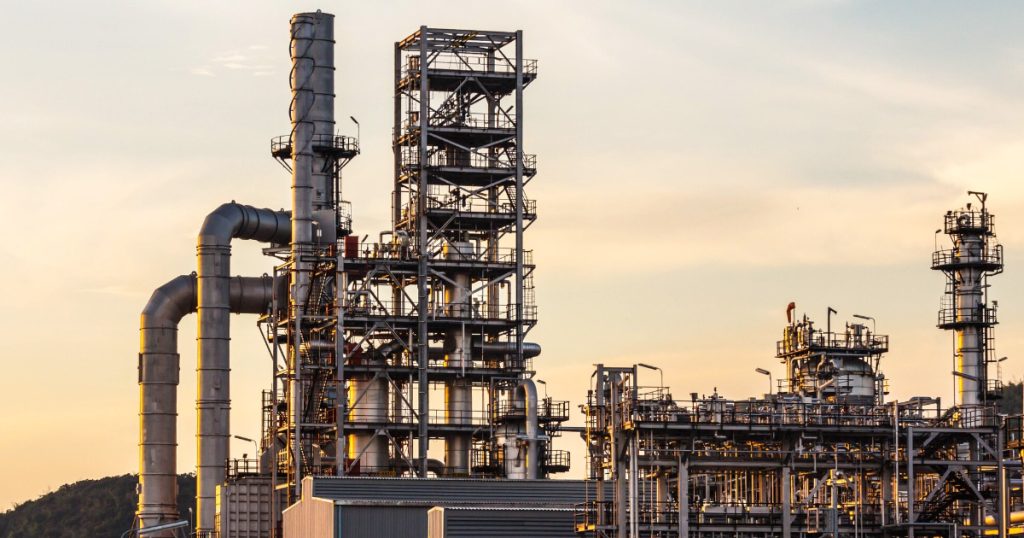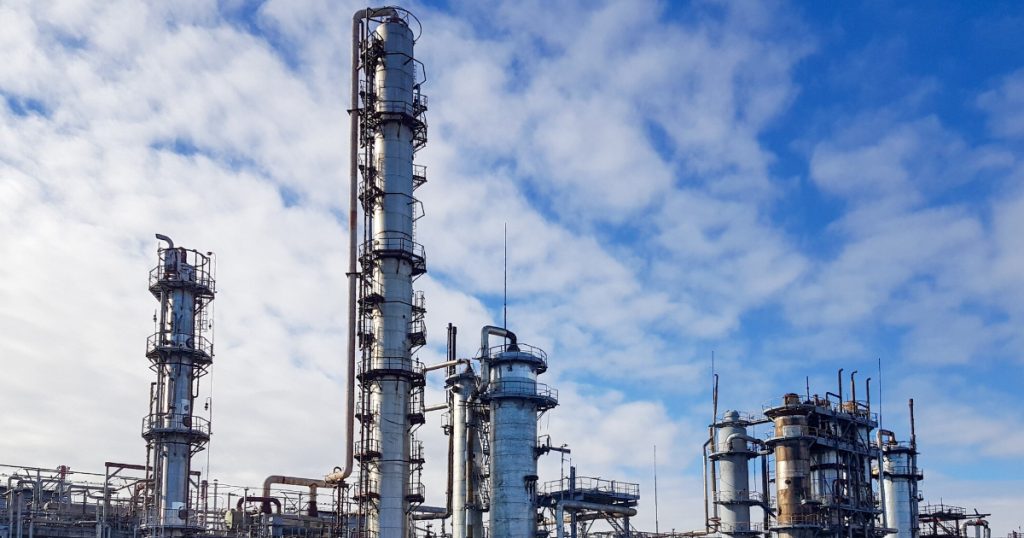In the complex world of petrochemical plant development, the transition from construction to full-scale operation demands precision, expertise, and strict adherence to safety. This critical stage Petrochemicals Erection commissioning ensures that all installed systems, equipment, and components are safe, reliable, and function exactly as designed.
From installing massive pressure vessels to calibrating advanced instrumentation systems, this process is the foundation of operational success. But commissioning isn’t just technical-it’s governed by best practices and industry standards developed over decades.
In this blog, we break down the 7 industry-backed standards that ensure safe, compliant, and effective commissioning for petrochemical plants. These standards cover everything from pre-commissioning protocols to maintenance contracts and shutdown procedures.
7 Industry Standards for Safe Petrochemicals Erection Commissioning
The following practices are widely regarded as benchmarks for safe and efficient plant commissioning:
1. Adherence to Global Safety Protocols
Following internationally established codes, such as OSHA, ASME, API, and IEC standards, is critical for ensuring safe execution. From worker PPE compliance to safe electrical installations, every activity in erection and commissioning must meet regulated safety benchmarks to avoid costly accidents and legal issues.
2. Structured Pre-Commissioning Process
The Pre Commissioning Petrochemical phase serves as the bridge between construction and actual operations. It includes pipeline flushing, pressure testing, instrument calibration, system drying, and loop checking. Following a checklist-driven pre-commissioning process prevents operational failures.
3. Qualified Erection of Rotary and Static Equipment
Both Petrochemicals Rotary equipment (like compressors and pumps) and Petrochemicals Static equipment (like vessels and exchangers) must be installed with expert precision. Leveling, anchoring, alignment, and torque tightening are all essential for ensuring long-term performance and reducing vibration breakdowns.
4. Vibration and Alignment Testing for Rotary Machines
Once the rotating equipment is installed, dynamic balancing and laser alignment must be performed. Early-stage vibration monitoring helps detect misalignments and mechanical looseness, protecting high-value equipment from premature wear.
5. Loop Checks and Control System Integration
Control systems are only as good as their field-device integration. Performing comprehensive loop checks ensures that sensors, transmitters, and actuators communicate properly with DCS/PLC systems-an essential step before hot commissioning begins.
6. Structured Shutdown and Turnaround Protocols
Deep inspections, catalyst replacements, mechanical repairs, and performance audits are all possible during planned Petrochemical Shutdowns. These shutdowns must be scheduled and executed using standard turnaround frameworks to minimize downtime and ensure post-restart safety.
7. Implementation of Long-Term Maintenance Contracts
A tailored Petrochemical annual maintenance contract ensures long-term equipment health, optimized performance, and minimized unscheduled outages. AMC scope typically includes preventive maintenance, audits, emergency response, and spare parts management.

What is Erection and Commissioning?
Erection refers to the on-site assembly and installation of mechanical, electrical, civil, and instrumentation components of a petrochemical plant. This involves bolting, welding, rigging, pipe fitting, equipment alignment, and safety barricading, all done according to the engineering design.
Commissioning begins after physical erection is complete. It includes testing systems under simulated and real conditions to ensure that every unit operates in sync with the control systems and plant specifications.
This process includes:
- Cold commissioning (dry runs and testing without process fluid)
- Hot commissioning (testing with live process materials)
- Functional and performance testing
- Final handover to operations
What Are the Steps of Pre-Commissioning?
Pre-commissioning is the most detailed stage of the startup procedure. It verifies that every installed component is safe, clean, calibrated, and ready for use.
Typical steps in Pre Commissioning Petrochemical workflows include:
- Mechanical Cleaning & Flushing: Use of water, air, or chemicals to remove internal debris and contaminants from pipelines.
- Hydrotesting: Pressure testing is used to ensure the mechanical integrity of pressure vessels and pipes.
- Drying & Inerting: Moisture removal using nitrogen or dry air to prevent corrosion or unsafe chemical reactions.
- Electrical Testing: Grounding checks, insulation resistance, and breaker functionality testing.
- Loop Checks & Instrument Calibration: Ensuring every sensor or control valve communicates accurately with the DCS system.
What Are the Three Main Types of Petrochemicals?
Petrochemicals are broadly classified into:
- Olefins – Includes ethylene and propylene, which are used in plastics (polyethylene, polypropylene).
- Aromatics – Includes benzene, toluene, and xylene, commonly used in detergents, solvents, and textiles.
- Synthesis Gas (Syngas) – A mixture of hydrogen and carbon monoxide, used for making ammonia, methanol, and other intermediates.
Each type has distinct production and handling requirements, impacting the design and commissioning strategy of a petrochemical plant.
Rotary Machines Used in the Petrochemical Industry
Rotating machinery is the heartbeat of petrochemical operations. Common Petrochemicals Rotary equipment includes:
- Centrifugal Pumps
- Reciprocating and Screw Compressors
- Fans and Blowers
- Turbines and Gearboxes
During erection, these machines are mounted with precision alignment and balancing. After installation, dynamic testing, vibration analysis, and lube oil flushing are standard practices before handover.

Petrochemicals Erection Commissioning in Oman
Swamina International delivers expert Petrochemicals Erection commissioning in Oman, supporting petrochemical plants, refineries, and gas facilities with safe, efficient startups. We provide equipment erection, pre-commissioning, system integration, and compliance with Oman’s industrial standards as well as global codes such as ASME and API.
With proven experience in the region, we ensure reduced downtime, enhanced reliability, and timely project completion for both greenfield and expansion projects.
Petrochemicals Erection Commissioning in Nigeria
We provide specialized Petrochemicals Erection commissioning in Nigeria, catering to the country’s growing oil, gas, and petrochemical sectors. Our services cover rotary and static equipment erection, testing, and pre-commissioning, all in compliance with Nigerian regulations and international standards. By combining global best practices with local expertise, we help plants achieve safe, cost-effective, and high-performance.
What is the Static Equipment?
Unlike rotating machinery, Petrochemicals Static equipment consists of non-moving units that hold, transfer, or react chemicals under pressure and temperature.
Key examples:
- Reactors
- Pressure Vessels
- Storage Tanks
- Heat Exchangers
- Distillation Columns
These structures are subject to rigorous NDT (non-destructive testing), radiography, and hydrotesting before commissioning. Their erection requires adherence to codes such as ASME Section VIII and API 650.
The Importance of Shutdown and Turnaround Services in Petrochemical Industry
Scheduled Petrochemical shutdowns are not just maintenance windows-they are essential opportunities to extend plant life and optimize output.
Typical shutdown activities include:
- Catalyst changeouts
- Overhauling of pumps and compressors
- Valve replacements and hydrotesting
- Instrument recalibration and DCS upgrades
- Detailed inspection of structural integrity
These turnarounds involve intensive manpower, specialized tools, and cross-functional coordination. Swamina International offers end-to-end shutdown services with minimum downtime and maximum safety compliance.
What is the Annual Maintenance Contract?
A Petrochemical annual maintenance contract (AMC) is a formal service agreement that ensures consistent monitoring and upkeep of plant assets.
AMC benefits include:
- Scheduled preventive maintenance
- Priority emergency support
- Performance analytics
- Equipment lifespan extension
- Cost-effective spares management
Swamina International offers customized AMCs tailored to high-capacity petrochemical units, reducing unscheduled downtimes and maintaining safety compliance.
Petrochemicals Overhauling: Why It Matters
Petrochemicals overhauling refers to comprehensive teardown and rebuild of critical equipment, typically during major shutdowns or after performance dips.
Overhauling services include:
- Disassembly and internal inspection
- Wear-and-tear analysis
- Replacement of seals, bearings, impellers
- Reassembly and realignment
- Final validation and certification
This process revitalizes old or underperforming units, delays capex investment in new equipment, and ensures safe operation under demanding industrial conditions.
Frequently Asked Question (FAQs)
1. What are the 4 types of maintenance in petrochemicals?
- Preventive Maintenance – Scheduled inspections and replacements.
- Predictive Maintenance – Data-driven alerts using sensors and IoT.
- Corrective Maintenance – Immediate action after equipment failure.
- Condition-Based Maintenance – Actions based on equipment performance and analytics.
2. How often should shutdowns occur in petrochemical plants?
Most major shutdowns happen every 3-5 years, with smaller turnarounds or inspections occurring annually depending on plant capacity and risk levels.
3. What is the difference between hot and cold commissioning?
- Cold Commissioning – Testing without actual process fluid (dry runs).
- Hot Commissioning – Using real process fluid under operational conditions to validate performance.
4. What is loop checking in commissioning?
Loop checking ensures that field instruments and control systems are properly wired and function as a complete loop-from sensor signal to control room and actuator response.
Key Points to Remember
A successful Petrochemicals Erection commissioning process isn’t a luxury-it’s a necessity for safety, productivity, and compliance. Following industry standards for pre-commissioning, equipment handling, shutdowns, and long-term maintenance ensures that every plant starts strong and operates efficiently.
Swamina International provides turnkey commissioning, shutdown, and AMC solutions backed by proven industrial expertise.
